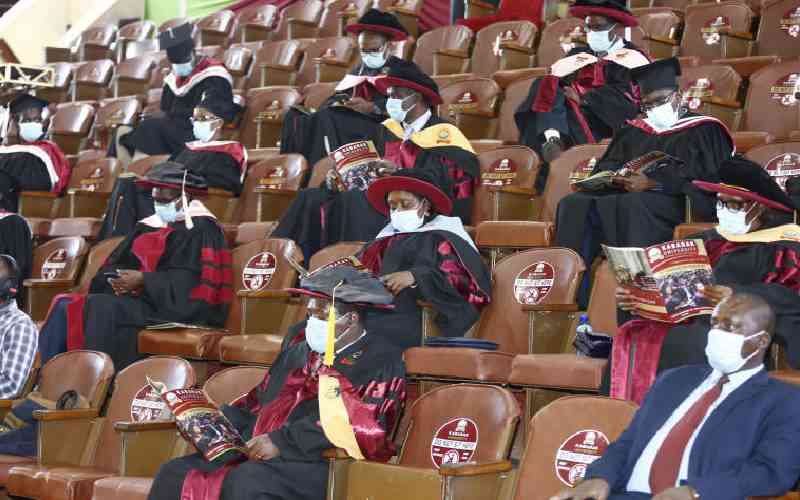×
The Standard e-Paper
Smart Minds Choose Us

As the clock ticks and the August 8 election approaches, the issue on fake academic degrees lingers, as several aspirants face questions over credibility of their academic papers.
A degree certificate is a requirement, stipulated in the Constitution, for Woman Rep, MP, Senator, governor and presidential candidates.